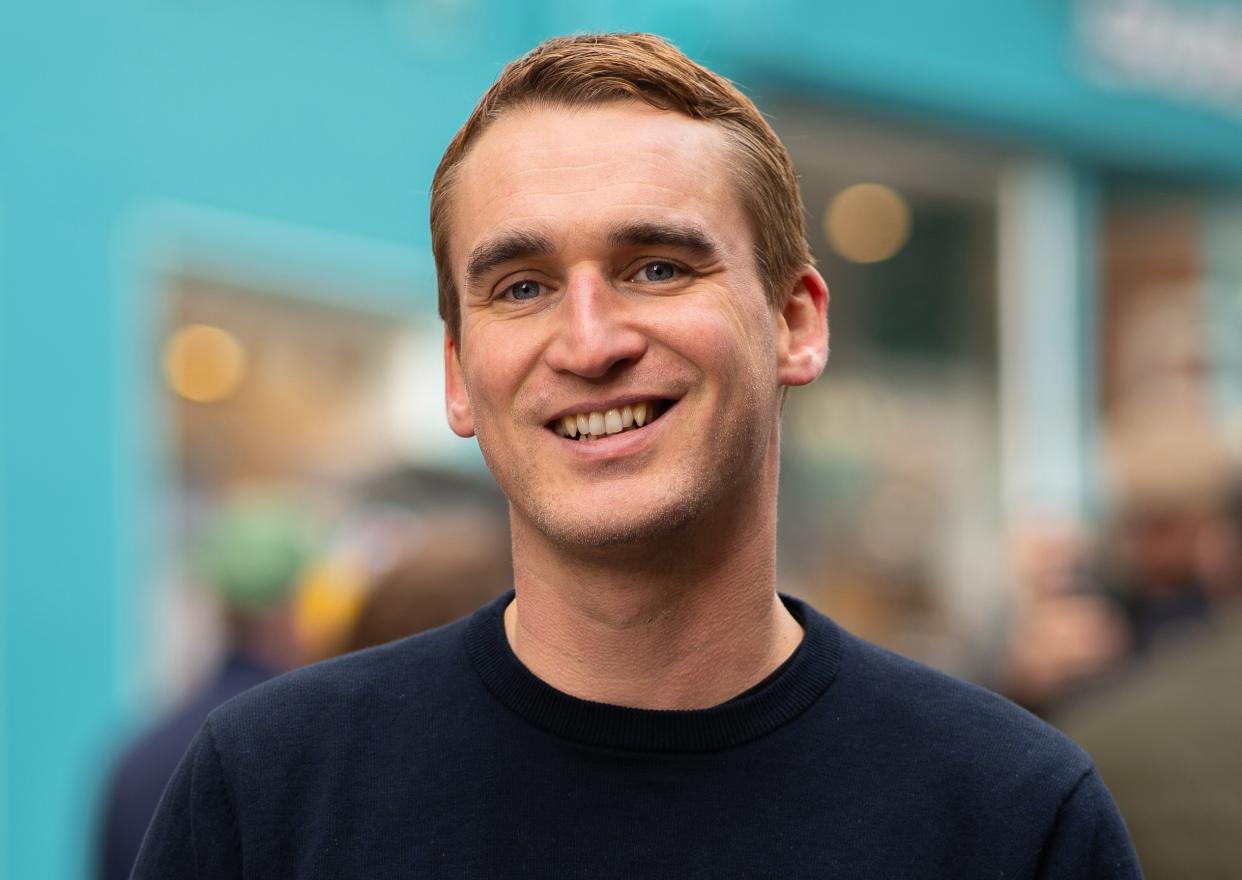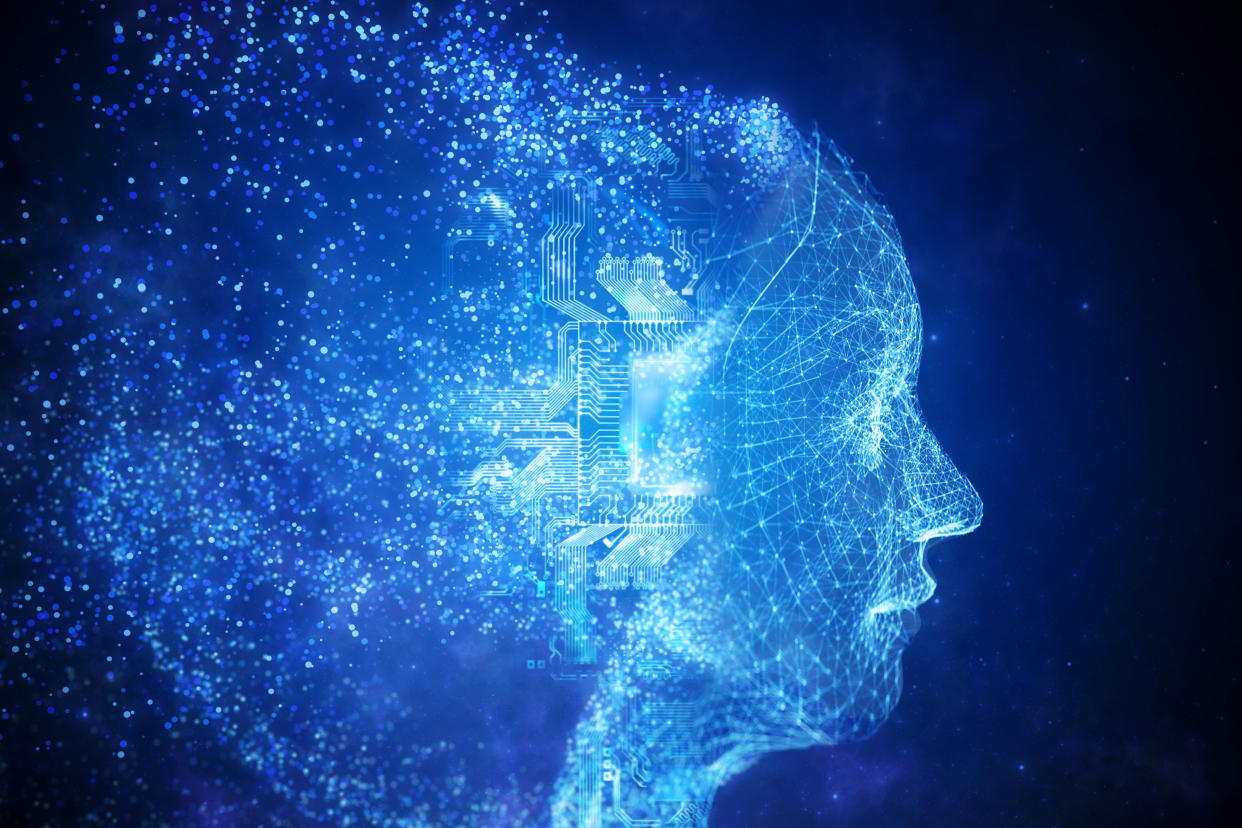Here's why AI could collapse the world economy, according to an expert

The next 30 years will see artificial intelligence spark a huge change in the way we live, akin to the shift between hunter-gatherers and today's digital economy, a top AI expert has claimed.
In the process, the world economy will be upended, and things we take for granted today will change beyond recognition, says Ed Broussard, co-founder and managing director of Tomoro.ai.
Tomoro.ai works with ChatGPT creator OpenAI to create AI 'agents' that work as 'synthetic employees' alongside human beings. Broussard previously co-founded fintech AI firm Mudano, which Accenture acquired in 2020.
Broussard is optimistic about the future, believing that AI could bring about an age of leisure where people work three days a week or even less, but warns that the transition might not necessarily be smooth, and in the process, the world economy could be turned upside down.
What could AI do to the world economy?
The concentration of computing power needed to power AI will put vast amounts of money into the hands of a very small group of companies, says Broussard.
In turn, this could mean the world needs to rethink what work means - and how taxation works.

Broussard said: "A utopian AI future isn’t necessarily the default path. AI is a compute-heavy exercise, that means you need extremely powerful computers to build successful AI, and the companies with the most computers will almost inevitably create the most powerful AIs.
"There's less than 10 companies in the world who can really win in this space as they have access to the computer chips, money (billions and billions of dollars) and talent. AI could drive the greatest utopian redistribution of wealth ever seen as we move into a world of productivity abundance, or the greatest contraction of wealth ever as over time almost all knowledge work is done, or is augmented, by only a few mega-corporations."
How will governments work in the age of AI?
The economic issues around AI are not simply around market competition, according to Broussard.
He said: "AI doesn't live in countries so as more and more productive work moves from humans to AI we will need to completely rethink how taxation will operate.
"If humans become less relied upon for economic productivity we may have to look at ideas like Universal Basic Income – but who is going to pay for it if governments can’t tax AI – are we expecting Microsoft or Nvidia to pay the basic income for everyone on the planet?
"Ultimately, humans are extremely resilient and we will create the new models for society, taxation and businesses that operate in a post-AI world. The key is for individuals, businesses and governments is to face into the opportunity to reinvent the world better.
"Don't think of this AI revolution as similar to the change triggered by the internet, its muchbigger than that. This is more like the change between hunter gatherers to the digital native city dwellers of today. The next 30 years will be a constant evolution of human society."
What will AI do for our daily lives?
In terms of our daily lives, and in terms of human knowledge, there’s a huge amount to be optimistic about, Broussard believes.
He said that AI will lead to a new age of leisure for human beings, and power scientific breakthroughs.
"We're only in phase 1 of the AI revolution and we've already seen studies showing 40% improvements in people’s work using standard AI chatbots like ChatGPT. Once we have customised AI agents embedded into large businesses, even modest projections would suggest 100% uplifts in productivity every two years or so – that would equate to over 1000% productivity uplift in the next decade."
Analyst Goldman Sachs has predicted that AI could lead to a $7tn boom this decade, raising global GDP by 7%.
Could people really work three days a week?
Broussard believes that the productivity gains from AI could lead to a future where humans work much less.
He said: "With a 1000% productivity uplift over the next decade, that's equivalent to working one day a fortnight and delivering the same output as today - that could change what it means to live life. The amount of time people work would start to decouple from the output they can produce. We may start working three days a week, or less. Living our lives, spending time with our families, enjoying a completely different standard of living.
"Not only that, scientific breakthroughs will be faster and more significant – the 30 years or so we have left to solve climate change, suddenly becomes more like 300 years of scientific progress as AI models massively increase productivity and also give scientists new tools to run simulations and analysis."
Read more
ChatGPT is easy to fool – and might be less useful than we thought(Yahoo News UK)
AI researcher calls for 'immediate worldwide ban' (Business Insider)
AI researcher says '10-20%' chance AI will take over (Fortune)


